Top Chefs Reveal the One Ingredient to Elevate Any Dish

What makes a dish not just good, but truly unforgettable? “A good dish should leave a deep impression,” says the Michelin Guide. “For example, a well-executed steamed fish with soy sauce and green onions is great, but when a chef adds something unique, like Sichuan peppercorn, it elevates the dish. It is this kind of personal distinction that makes a dish memorable, and therefore great.” So what do top chefs like to use in their own cooking? Here are 9 ingredients chefs say will make the simplest of foods shine.
RELATED: 36 Pantry Staples Every Home Cook Needs.
Anchovies
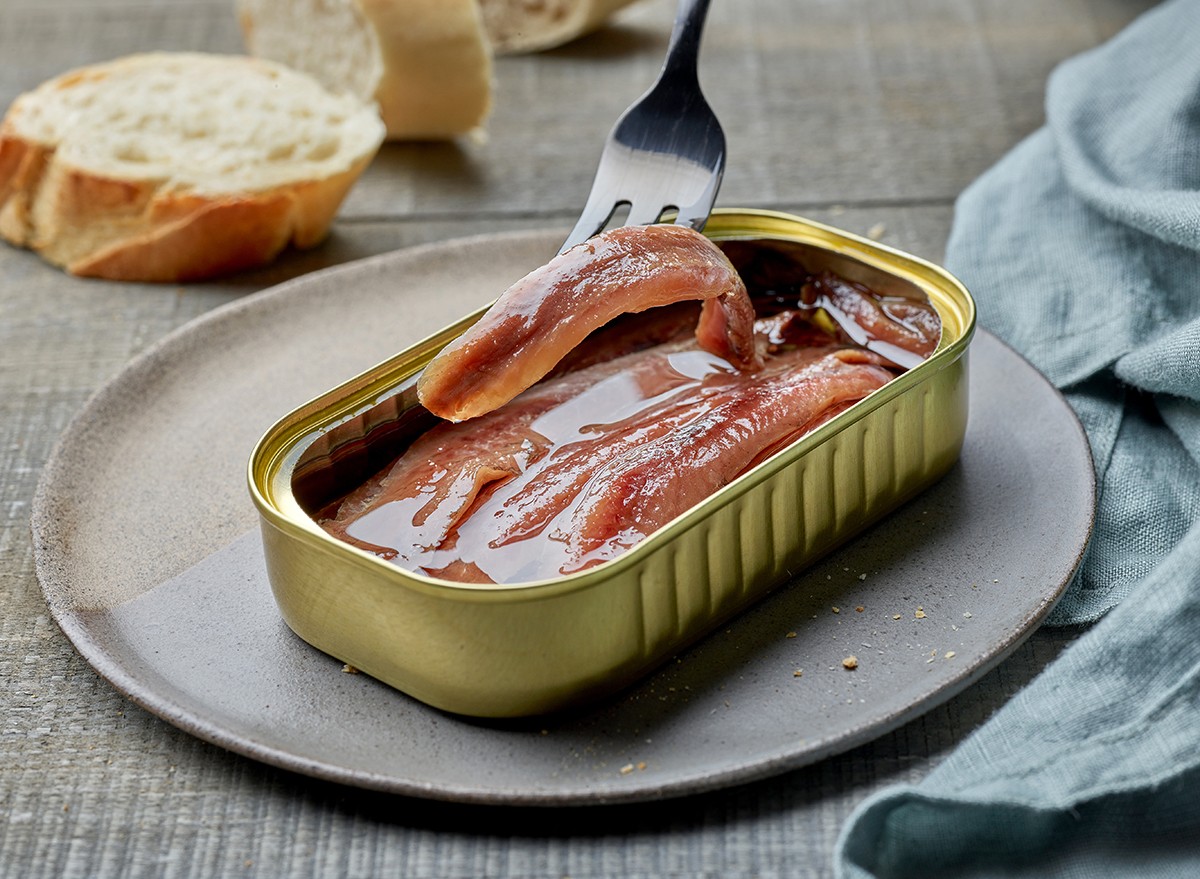
Chances are, you’ve already tasted this ingredient hidden in many dishes, lending a wonderful subtle umami flavor to a sauce, dressing, or stew. “I use anchovies in so many dishes—red sauce, eggs, vinaigrette, pastas,” chef Missy Robbins of Lilia and Misi in New York City tells Men’s Journal. “I think people get turned off to anchovies because sometimes they’re used heavy-handedly. But if you use them as a balancing ingredient, they can give a next-level flavor without you really knowing they’re there. I typically stock my kitchen with oil-packed ones. Spanish anchovies are amazing, but I like to try different brands from all over.”
Ginger
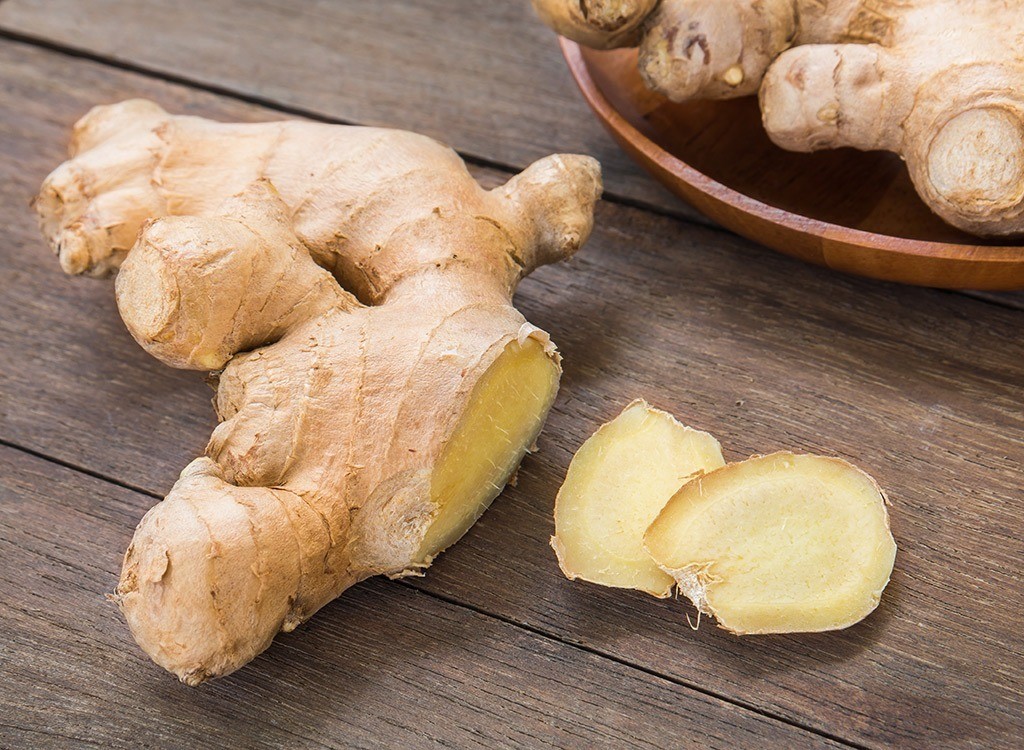
Chef Brandon Jew from Mister Jiu’s in San Francisco loves ginger. “We use it in so many ways; it’s so versatile,” he tells Bon Appetit. “We ferment it; we pickle it; and then there are different stages of ginger—when it’s younger, it tastes one way; when it’s older, it tastes another way. We use it in so many recipes. It’s definitely like my crutch. Though if I can cheat and say a trio, I’d say ginger, scallion, and sesame.”
Bacon Fat

Chef Austin Kirzner of Red Fish Grill in New Orleans saves leftover bacon fat. “After frying up bacon at home, I always save the bacon fat in a jar and keep it by the stove as an essential addition to other dishes,” he tells PureWow. “It enhances foods like beans and greens—anywhere you want a rich smoky flavor. Grease a pan for eggs with a little bacon fat instead of butter. You’ll never turn back.”
Lemon Juice
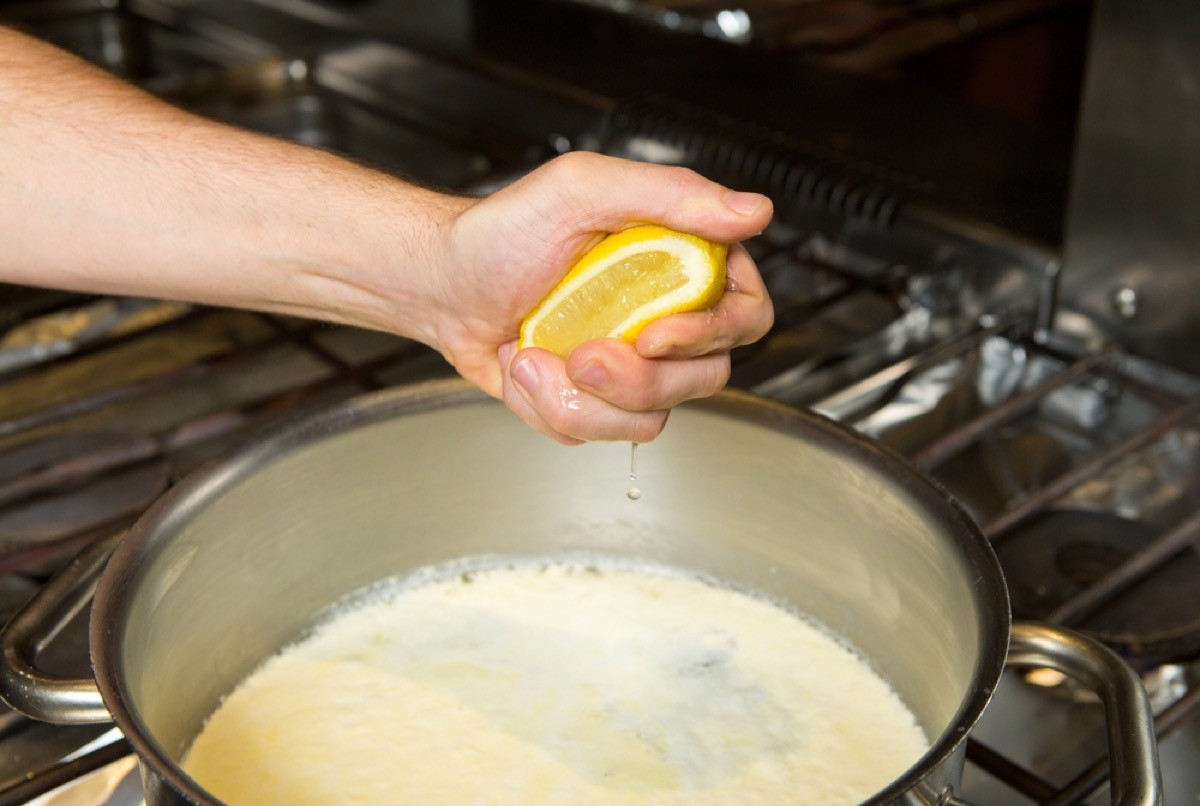
Chef Brian So from Spring in Marietta, GA swears by lemon juice. “At Spring, we season almost everything with lemon juice,” he tells Bon Appetit. “We squeeze our lemon juice as close to service time as possible, so we can have it nice and fresh in little squeeze bottles in the kitchen. We’ll do everything from just season our soups at the very last minute to adding a little bit to a salad to give it that fresh taste. It kind of just lifts everything and makes it a lot fresher and brighter.”
RELATED: How to Meal Prep for the Week.
Strained Yogurt

Chef Brandon Shapiro of Wildwood Kitchen in Bethesda, MD loves strained yogurt. “Use it for breakfast with fresh fruit and granola, for lunch as a tzatziki sauce on pita with grilled chicken or vegetables, as a salad dressing, or a marinade for lamb or beef,” he tells PureWow. “Its thick tanginess makes it a healthy, flavorful substitute for mayonnaise or sour cream. It can even be used in baking.”
Seaweed
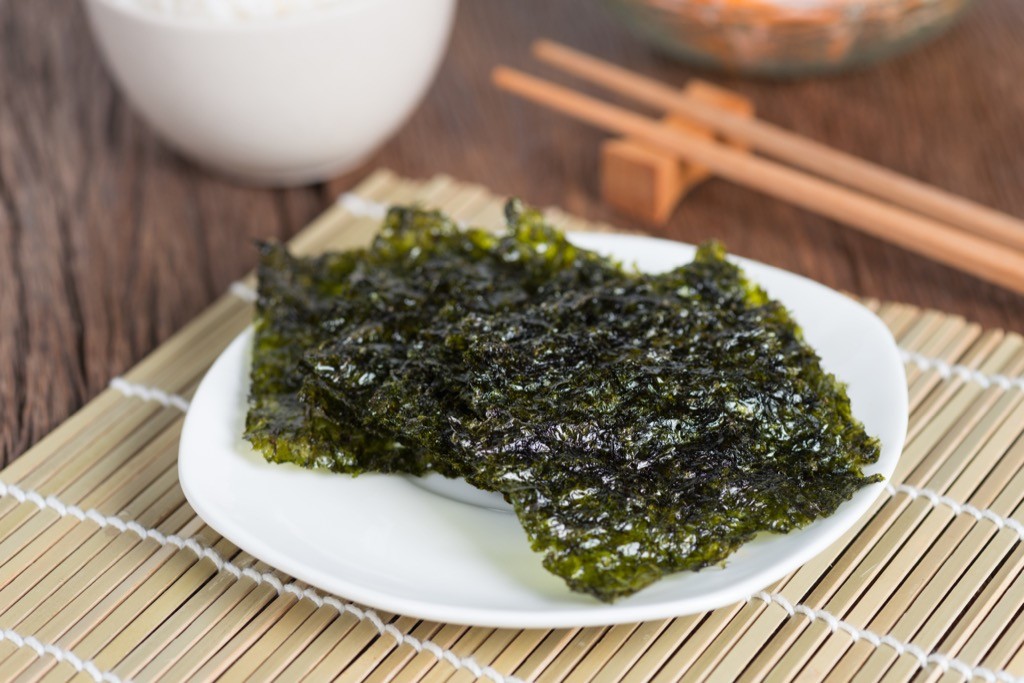
Chef Dárcio Henriques of Raiva, Portugal is passionate about seaweed. “It is one of the most versatile powerful ingredients, full of benefits for the health and for the planet,” he tells the Michelin Guide. Seaweed is full of nutritional value, full of flavor and health benefits (rich in various nutrients with potential antioxidant properties, rich in fiber and iodine content to name a few) and is also planet friendly. For me, it is one of the most special ingredients that will come full of power and techniques in the future for all the chefs.”
Soy Sauce
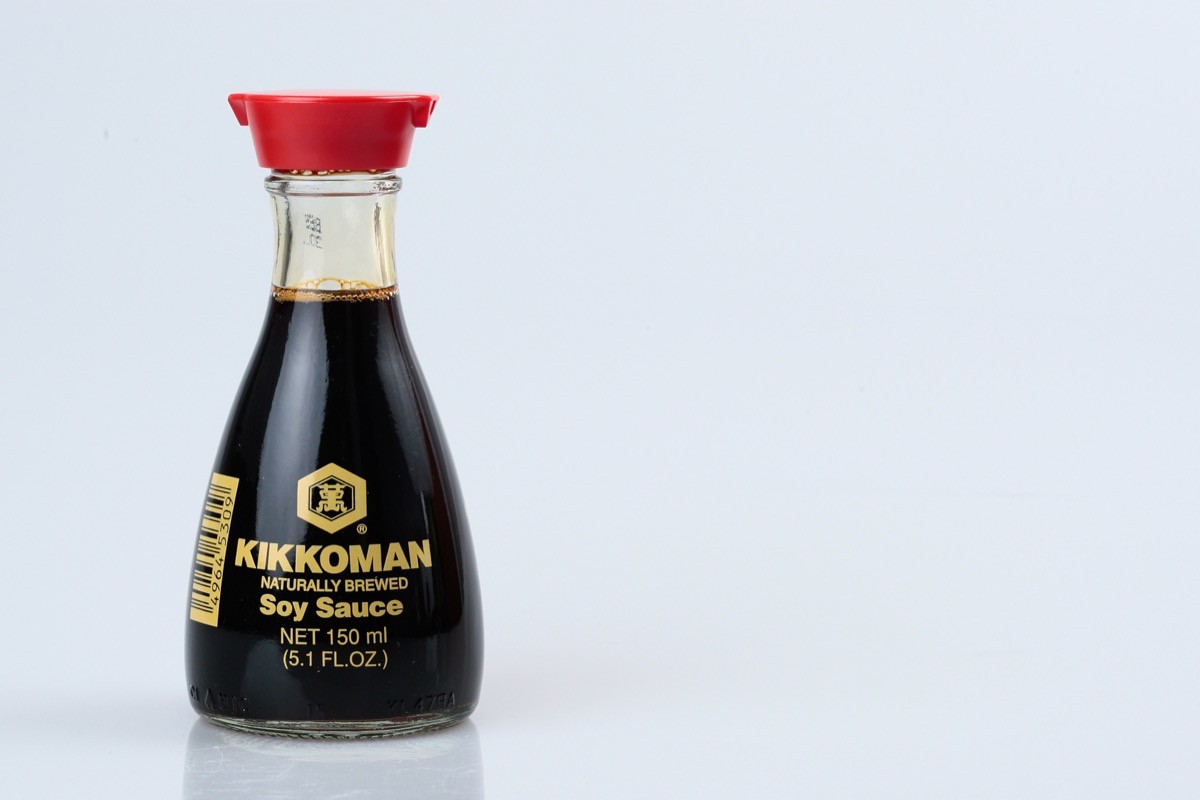
Chef Takuya Matsumoto Kemuri from Tatsu-Ya in Austin loves soy sauce. “I’ll mix it with anything,” he tells Bon Appetit. “When I was a kid I used to eat rice all the time, so I’d just mix it with butter and soy sauce to keep it from getting boring.”
Unfiltered Olive Oil
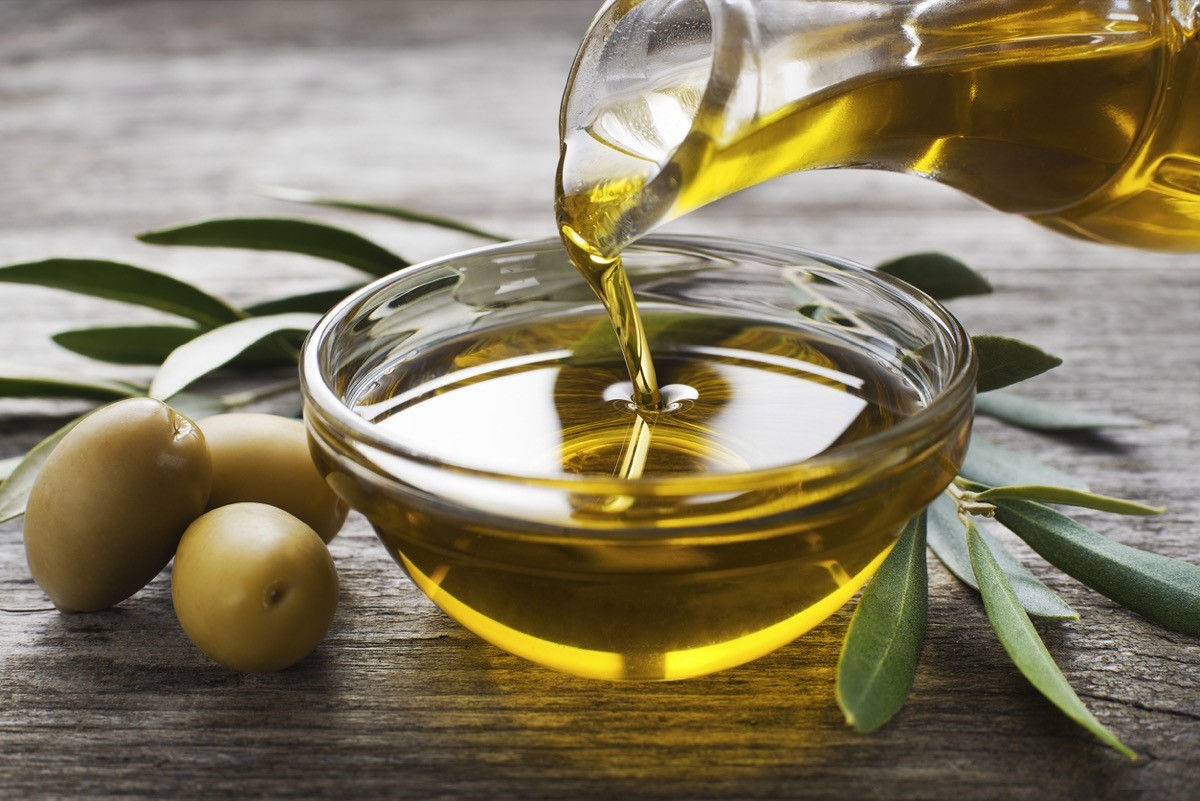
Chef Christina Scifo of Maxwell Chophouse in NYC uses olive oil every day. “I cook with meat all day and have three go-to ingredients that are easy to find: unfiltered organic olive oil, kosher salt and fresh black pepper,” she tells PureWow. “When cooking with meat, keep the seasonings simple so the quality of the meat can shine through.”
RELATED: 10 Simple Steps to Declutter Your Kitchen Fast.
Nepitella

Chef Stefano Secchi of Rezdôra in New York City loves Nepitella. “This is an herb from Italy that is a cross between mint and fresh marjoram; it’s floral with that fresh herbaceous note,” he tells the Michelin Guide. “While it is used occasionally in Italy, we rarely see it in the U.S. and it can cross over between savory and sweet applications. The flowers are also edible, purple, delicious, and beautiful.”